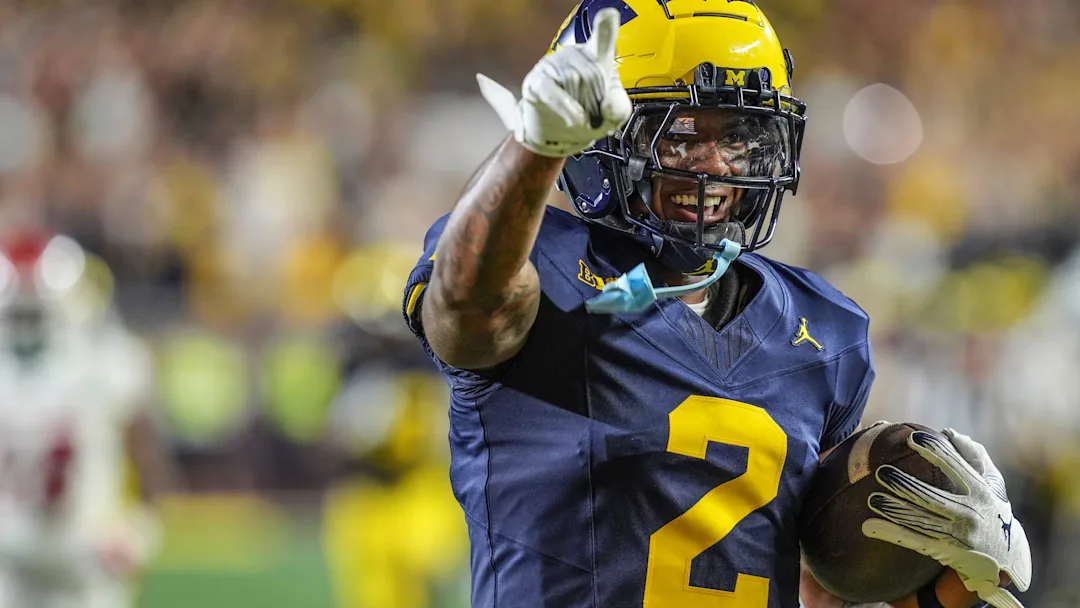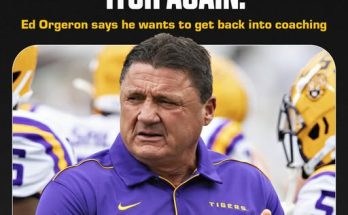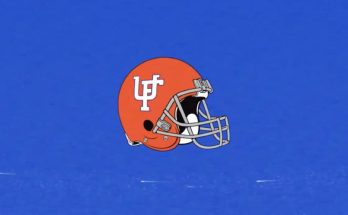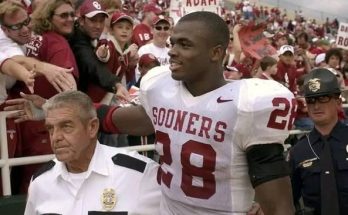The Arizona Cardinals are no strangers to calculated risks. In a league where talent often outweighs caution, the decision to select a highly talented but polarizing rookie cornerback in this year’s NFL Draft didn’t come without scrutiny. Questions swirled in the weeks leading up to the draft: Could the Cardinals afford to gamble on a player with such a controversial track record? Were the red flags too glaring to ignore? And more importantly, would this risk ultimately pay off in the long run?
Despite all the noise, the Cardinals made it clear—they aren’t worried.
The player in question, whose name lit up scouting reports as often as it did headlines, was considered by many experts to be one of the most physically gifted prospects at the cornerback position in recent years. With a rare blend of speed, size, agility, and instincts, he checked virtually every athletic box. He locked down top receivers in college, made highlight-reel interceptions, and brought an edge that teams crave in their secondary. Yet it wasn’t the tape that had people talking. It was everything else.
There were whispers of off-the-field immaturity, inconsistent behavior in practice, and a perceived attitude problem that rubbed some coaches the wrong way. A few teams reportedly removed him from their draft boards altogether. Anonymous executives questioned his coachability, while others expressed concern about how he’d handle the pressure of the NFL spotlight. By the time draft night arrived, his name had slipped further down the board than anyone had anticipated based on pure ability.
But Arizona, in the midst of a full-fledged rebuild and desperately in need of game-changing talent on defense, decided to roll the dice. The front office did its homework—extensive background checks, multiple interviews, conversations with college coaches, teammates, and support staff. They spent time with him at the NFL Combine and again during a private workout. What they saw behind closed doors gave them reason to believe.
According to sources inside the organization, the Cardinals were impressed not only by his athleticism but by his accountability. The young cornerback didn’t dodge the tough questions. He acknowledged past missteps, spoke candidly about the lessons he learned, and emphasized his commitment to growing as both a player and a person. Those conversations weren’t rehearsed or polished—they were raw, honest, and, in the eyes of the Cardinals’ leadership, genuine.
General manager Monti Ossenfort addressed the pick directly in his post-draft press conference. “We’re aware of the concerns that have been raised. But we wouldn’t have made this selection if we didn’t believe in the young man behind the player,” Ossenfort said. “Talent matters, but so does character. And we believe his best football—and his best version of himself—is still ahead of him.”
It’s a sentiment echoed by head coach Jonathan Gannon, a former defensive coordinator with a deep understanding of how to mold elite defensive backs. Gannon, known for his high-energy coaching style and attention to detail, sees the rookie’s brash confidence not as a liability but as fuel. “This league is tough. You’ve got to have a short memory, a strong mindset, and a hunger to prove yourself every day,” Gannon said. “He’s got that fire. Now we just have to channel it the right way.”
The Cardinals’ locker room, anchored by a mix of young talent and veteran leadership, will play a crucial role in that process. Veterans like Budda Baker and Kyzir White are expected to take the rookie under their wing, providing guidance both on and off the field. Early signs suggest the integration is already going well. During rookie minicamp, the new cornerback was reportedly one of the most vocal players on the field—offering encouragement, soaking up feedback, and showing flashes of the lockdown potential that made him a top-tier prospect.
In his first media availability as a Cardinal, the rookie addressed the elephant in the room head-on. “I know what people are saying. I’ve heard it all,” he said. “But I’m here to work. I’m here to earn respect. I’m not perfect—I’ve made mistakes. But this is a fresh start, and I’m grateful to the Cardinals for believing in me.”
He didn’t duck any questions. When asked about the concerns over his maturity, he admitted that he struggled with discipline early in his college career and sometimes let his emotions get the better of him. But he emphasized that the past year was a turning point—he leaned on mentors, prioritized mental health, and began to understand the impact of his actions on those around him. He also credited his college position coach with holding him accountable and teaching him the importance of being a pro even before reaching the NFL.
Despite the distractions, there’s no denying what he brings to the field. He’s a physical press corner who thrives in man coverage and shows surprising instincts in zone. His closing speed is elite, and he’s not afraid to come downhill and tackle. At times, his aggression can lead to penalties, but that’s something the coaching staff believes can be refined with experience and film study. His ball skills are natural, his footwork crisp, and his upside—should everything come together—is massive.
Still, talent is only part of the equation. The transition from college to the NFL is a challenge for any rookie, let alone one walking in with a reputation to disprove. The margin for error shrinks, and every move is scrutinized. But if there’s one thing the Cardinals are banking on, it’s that their culture can foster growth, not just production.
It’s worth remembering that the NFL has seen this story play out before—athletes with red flags who turned their careers around once placed in the right environment. The Cardinals believe their system, their locker room, and their investment in player development will make the difference. They’re not asking him to be a star on Day 1. They’re asking him to buy in, stay hungry, and take it one day at a time.
If he does, the rewards could be enormous. The Cardinals’ secondary was in need of a jolt—someone who could match up against the league’s best receivers and bring a swagger to a defense trying to forge a new identity. Their rookie cornerback brings that edge, that chip, that “prove them wrong” mentality. And if he channels it the right way, Arizona may have landed a steal.
Only time will tell how the bet plays out. For now, the Cardinals are standing by their decision, confident that what others saw as red flags, they see as growing pains. They’ve made their evaluation. They’ve placed their faith. Now it’s up to the rookie to reward it.
And by all accounts, he’s ready.



